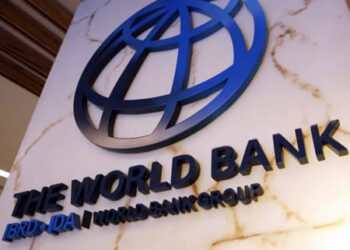As the Israel-Hamas conflict continues to unfold, many world leaders and organizations have weighed in with their perspectives, concerns, and calls for peace. However, a noticeable silence persists among several African leaders, including prominent figures like Bola Ahmed Tinubu, the former Governor of Lagos State in Nigeria. This silence on the ongoing Gaza conflict raises questions about Africa’s role in addressing global humanitarian crises.
The Israel-Hamas conflict, marked by intense violence and tragic loss of life, has garnered international attention and condemnation from various countries and leaders. As the world watches, calls for a ceasefire and the protection of civilian lives have grown louder. Yet, several African leaders have chosen to remain conspicuously silent on the matter.
Bola Ahmed Tinubu, a key political figure in Nigeria and a leader of the ruling All Progressives Congress (APC), is among those who have not issued a statement on the conflict. His silence on the Gaza war, which has sparked protests and expressions of solidarity in many parts of the world, has raised concerns among his constituents and the global community.
However, it’s important to recognize that Tinubu is not alone in his silence. Many other African leaders have refrained from commenting or taking a stance on the Israel-Hamas conflict. This collective reticence prompts questions about the role of African leaders in addressing global issues, particularly those that involve human rights violations and humanitarian crises.
The reasons for this silence may be multifaceted. One explanation could be the delicate nature of international relations and diplomacy, as some African nations maintain strong diplomatic ties with both Israel and Palestine. This can make it challenging for African leaders to take a clear stance without risking diplomatic repercussions.
Another factor contributing to the silence is the range of domestic and regional challenges many African leaders face. Issues like internal conflicts, economic instability, and political unrest may consume their attention, leaving little room for global crises.
However, the Gaza war is not just an international conflict; it is a humanitarian crisis marked by the loss of innocent lives. The global community looks to its leaders for moral guidance and expressions of solidarity in times of need. The silence of African leaders in the face of such a significant humanitarian crisis sends a concerning message about the continent’s priorities and global responsibilities.
As global citizens call for unity, peace, and the protection of human rights, it is essential for African leaders, including Bola Ahmed Tinubu, to reflect on their responsibility to address and engage with international crises like the Israel-Hamas conflict. Silence may inadvertently signal indifference, and in such situations, diplomatic considerations should be weighed alongside the value of moral leadership and global solidarity.
Africa, with its diverse and complex history, has a role to play in fostering peace and understanding on the global stage. As the Israel-Hamas conflict rages on, the international community hopes to hear the voices of African leaders, emphasizing the importance of a peaceful resolution, the protection of civilian lives, and a commitment to global harmony.











